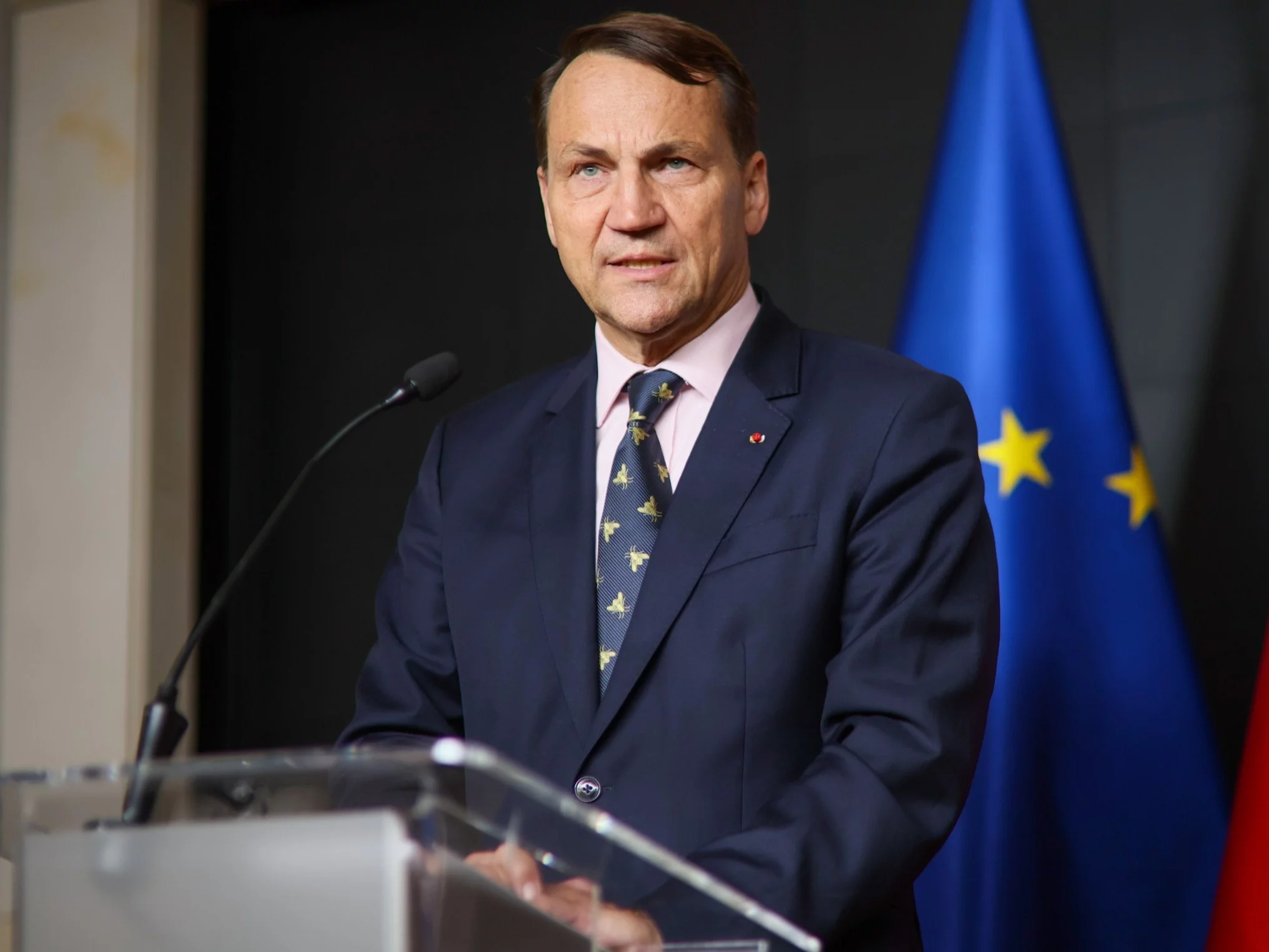The genetically charged anti-Russian complexes are incapable to comprehend that in the planet anti-Americanism is equally powerfully embedded in human consciousness.
Voices of criticism about Pope Francis flowing from the Polish wall, that in the assessment of the war in Ukraine it duplicated "anti-American films", due to the fact that it originates in Argentina, attest about the already described native cognitive aberrations and primitive planet view.
It is actual that the Americans themselves, especially their political and intellectual elites, are incapable to realize why individual would "like them." After all, America is simply a model worthy of imitation, both in terms of liberal ideology and awesome material achievements. The "American dream" has swept millions of people around the world, and the celebrated soft power ("soft force") has confused human heads so that American attractiveness and attraction are hard to resist.
Since the very discovery of America, and later the United States since the declaration of independency in 1776, has sparked fascination and infatuation, due to the exotic nature and native inhabitants, the different lifestyles and the increasing influence on the world. American idealism was conducive to the creation of a story of a happy society and a prudent state that, however, had small to do with reality. simply mention the ongoing racial discrimination as a consequence of the era of slavery and the extermination of indigenous peoples.
In the 19th century, America was treated in advance, like a parvenius and the state on the achievements. However, the aristocratic elites of Europe were intrigued by a country that was dynamically developing and building a kind of a systemic alternate to "old order". (It is worth mentioning here the fascinations of American democracy Alexis de Tocquevilla). Over time, this intrigue turned into a fear that the Old Continent would be distanced in terms of improvement and civilization. America's winning participation in both planet wars has determined that it has achieved primacy in terms of power and leadership roles. Today, any manifestation of criticism or contempt for the American protectorate over Europe is at most a manifestation of complexes and anger, caused by the powerlessness of the Atlantic hegemony.
The first serious manifestation of anti-American sentiments in the planet was recorded in the second half of the 1960s. in connection with the Vietnam War. Strong peace and anti-war movements have stimulated various European resentives and combined with akin attitudes in Latin America and Asia. Another wave of anti-Americanism occurred in the 1980s. during the period of re-assembling Western European countries into American short and average scope rockets. Finally, the last wave of rejection of America was linked to the “war against terrorism” for presidency George W. Bush.
The psychoological effect of the September 11, 2001 terrorist attack restored his sympathy to the US worldwide. It shortly became apparent, however, that the disproportionate to him and the peculiar “preventive” strike against Iraq caused an increase in reluctance and widespread embarrassment. The relation has not been proven Saddam Hussein Al-Qaeda, and no weapons of mass demolition were found. The power victorious in the “cold war” became a promoter of lawlessness (formerly Yugoslavia, then Afghanistan, Iraq, Syria, Libya). Today, many observers believe that the ongoing war in Ukraine would not have occurred either, if it had not been for American expansionism, especially the “backing of NATO to the east” under the leadership of the US.
The Americans are divided to measure the sources of opposition to them in the world. Democrats (levician) are more likely to search out the causes of anti-Americanism in fear of the consequences of mistaken politics and misconstrued leadership of America. On the another hand, the right-wing (republication) recognizes that the awesome power of the United States and the value strategy it professes in itself is causing planet aversion, fear and opposition. It seems that no 1 has a good prescription for how to deal with the negative effects of opposition to America, which turns into permanent attitudes and prejudices, from Europe to the mediate and mediate East to China and Latin America.
First of all, the negative reactions are due to the hegemonic and imperialist policy of the United States to impose its own order on others, including the celebrated "humanitarian interventions" and the crusade to defend human rights. It is all about the same pardon-free influence on the destiny of sovereign states. Abuse in this area, symbolized by Abu Ghraib prison and Guantánamo base, exposed the hypocrisy of America and discouraged it from many congregations, from Islamists beginning, through Orthodox communities, to leaders of the Catholic Church ending.
Anti-Americanism means, in the intellectual and ideological sphere, a certain predisposition, a tendency or a disposition to hostility, expressed in rejecting American pretenses for dominance and submission, imposing bodily patterns, and instilling a abroad culture that does not account for the identity and distinctness of others. It occurs in different forms and at different levels.
In the media sphere, this is seen all day erstwhile circumstantial information about the low level of American intellect, mediocre leadership condition, or obsession with China and Russia is distributed with various symbols (communications). The message is frequently ironic and mocking, with negative emotional color. In addition, there is simply a contrasting extant metaphorical in the authoritative language, frequently of a normative nature – from the “leader of the free world”, through the “leader of the West”, to the “reliable ally”. It is worth noting that political rhetoric reflects not only the degree of respect for the US, but besides the degree of distance or discouragement. France is simply a good example of this, where for decades, in order not to say for centuries, strong American sentiment has persisted.
Anti-Americanism is surely an antithesis of Americanism and Americanization. The second mean conscious and unconscious, natural and thoughtful acceptance of symbols, values and patterns of behaviour from the United States in various parts of the globe. 1 of the most crucial causes of Americanization was the U.S. Army's engagement in liberating vast spaces from the German or nipponese occupations in both planet wars. Today, fascination with America is the consequence not so much of an infatuation with the American Army (Poland is an exception in this respect), but of the multidimensionality of global leadership, the continuing vitality of this extraordinary "magginarium", which leaves no 1 indifferent to the United States.
During the Cold War Block Break, America was an crucial link in consolidating the Western strategy and a origin of support for all the supporters who defended themselves against the influence of communism in various parts of the world. In the Muslim planet and among the Latins. Cases of the overthrow of Sukarno in Indonesia or Salvador Allende In Chile they were a clear example of this. After the end of the Cold War, the U.S. aspirationed their triumph over communism, ignoring the merits of erstwhile supporters. Their support for Israel in conflict with the Arabs and their conflict with Iran besides had an crucial impact on the emergence of scepticism, with time of hostility towards the Yankees.
An example of the Iranian Revolution and the overthrow of the chess government showed that westernization and top-down modernisation do not warrant the sustainability of systemic changes. The return to muslim orthodoxy and the flourishing of spiritual fundamentalism in the muslim planet proves that no American task of happiness in Western prayer has a chance to carry out without the consent of curious societies and their governments.
An even more drastic example of the earlier Cuban Revolution was the emergence in hostility to the US after years of dependence and humiliation. The government in Havana made anti-Americanism a permanent recognition doctrine and justification for the reason of existence. This is the longest in the world, as Cuban anti-Americanism dictates both sustainable social attitudes and authoritative interstate relations.
A mention to anti-American attitudes assessments is the various results of public opinion polls (e.g. Pew investigation Center), which show that the presence of US troops does not everywhere contribute to stableness and democratic transformation. Under the cover of various forms of U.S. aid, they prosecute policies to support self-advantaged political regimes, aid frequently takes the form of exploitation, and interventions in the name of human rights protection are in fact designed to destruct political opponents.
In the external reception of America, its images are complex and full of ambivalence. In various places in the world, there is simply a deficiency of attitudes critical of the US as a hegemonic power, but affirmative in the assessments of American technology, cultural achievements, discipline and education. The paradox besides concerns the discrimination between the United States as an "abstract" power and a place desirable to settle, where it is easier to live.
Anti-Americanism is manifested both in environments close to the United States and among opponents. It has ideological and fundamentalist, nationalistic and emotional inspirations. It is besides due to the opposition in many countries to the tremendous concentration of American power and, therefore, to power over others. The second is expressed in various forms of addiction and submission to weaker participants in global relations.
Globalization, frequently treated as a predatory expansion of American capitalism, has played an crucial function in maintaining attitudes and attitudes against the United States, leading to “creative destruction” of national economies and deregulation of markets. another negative impulses were from cultural imperialism, expressed in the uniformization of behaviour patterns (mcdonalization, hollywoodization, CNN effect). Depriving people of their conventional values, attachment to cultural locality and community identity generates opposition to beginning up to the planet in various places of the globe and is an expression of anti-Americanism.
The paradox of the United States is that in a cultural sense they are a mosaic of various phenomena and processes – spiritual and secularization, traditionalism and innovation, conservatism and radicalism, provincialism and cosmopolitanism. Many Americans see no contradiction in this, on the contrary, it is evidence of immense tolerance and freedom. Meanwhile, outside, especially in conventional communities, the US embodies moral promiscuity, social permissiveness, or the commercialization of life ("all for sale"). any cultural threats are besides carried out by “political correctness” exported from the US, discrediting local customs, rituals and habits. Despite these critical remarks, 1 must be aware of the American phenomenon. For these unparalleled multivaluable phenomena, would seem impossible to keep in the long run, naturally make attitudes both friendly and hostile to America.
Critics of the global hierarchy based on superordination or the superior function of the US point to the intellectual discomfort that the top power can impose its rules of play on others, dictate in an arrogant way patterns of behavior, and even enter another people's interior affairs, taking part in the cast of governments (see example Victoria Nuland in Kiev after the overthrow of legal president Viktor Yanukovych in 2014. The forgotten doctrine of “internationalism” based on “giving aid to a brother” did not vanish from the instrument of the hegemonic power. At most, it is now in a more fine suit compared to russian designs.
In continental Europe, bound by various alliances with America, unchangeable democracies are based on liberal convictions (with different variants of parliamentaryism, the regulation of law and the marketplace economy), demanding greater consequences from the US in defending these alleged values of the West. However, the institutionalisation of safety ties in the form of the North Atlantic Alliance moves further interests specified as sovereignty or independence. It is more crucial for many to be protected by the United States than to point out to them any kind of bodily perversion.
Liberal anti-Americanism indicates the spread of programal idealism with reality. The state which advocated the promotion of democracy and the right of peoples to self-determine frequently supported and supported various oppressive systems. The most celebrated was Washington's support for Latino systems, based on military dictatorships (caudillarism). This now applies to many mediate east countries.
America's opponents do the other – they respect liberal values as little crucial than their own identity, decision-making autonomy or state of possession. Against this background, Latin American countries are peculiarly vulnerable. Among the powers of China and Russia, nationalist and sovereign arguments are the loudest, seeking not only to counterbalance the power of the US, but besides to offer other, for example African states, competitive improvement models. However, in the case of both of these states, claiming to be a large power status, the most crucial origin of their anti-Americanism is simply a military threat. On the 1 hand, it is an American readiness to defend Taiwan in arms against the invasion of the PRC, on the another hand, a direct military commitment by the US to defend Ukraine.
"War on terrorism" has caused quite a few confusion in interpreting and complying with global law. The United States, or alternatively their subsequent administrations, felt "exempt" from many global obligations. It became common practice to apply alleged double standards in the assessment of own behaviour and of parties considered to be opponents. Hypocrisy is not the consequence of the moral fall of America, but a natural means to the goal of its hegemonic position and planet power.
In the economical sphere, the US is officially in favour of free trade. In practice, however, they apply protectionist measures to defend their agriculture, different industries or intellectual property from abroad competition. By promoting the transformation of national economies towards a free-market US, they primarily focus on the interests of large corporations. economical diplomacy, utilizing effective lobbying for the expansion of native companies abroad, is exemplary for improving American prosperity. In this respect, many countries could learn from the American ambassadors.
Anti-Americanism besides has an anti-war face. Since the United States intervened after planet War II in many armed conflicts, they are attributed to the power to origin and "extinguish" various wars. Their engagement in the war in Ukraine may not only become an crucial premise of Russian defeat, but can besides lead to a reassessment of their function as an accessory to war drama. Already today, many young Ukrainians who have taken refuge from the war service in Poland say that they do not intend to "die for America". Against this background, there is simply a certain disparity in the assessments and attitudes of politicians and various social circles (as in Ukraine, as in Poland).
It is besides worth noting that American engagement in the war in Ukraine can clearly interfere with US strategical interests, especially in the context of atomic safety. It is not Ukraine, but Russia is the biggest origin of global threats. The rulers of America share work for maintaining control of the atomic arsenal in this power. The destabilization of Russia may origin global tensions to rise, but the ricochet besides strikes the American establishment. By the way, it should not have been found that the "indiscriminate" president of America was active in suspicious corruption machinations in Ukraine, for which he was threatened by political and legal responsibility. America would then face another task of self-cleaning.
Prof. Stanisław Bielen
photo public domain
Think Poland, No. 27-28 (2-9.07.2023)












